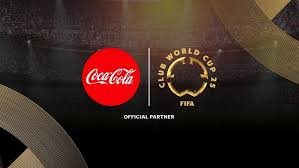February 21 – Coca-Cola has resolved its legal dispute with FIFA to become an official sponsor of this summer’s much-criticised expanded Club World Cup.
The soft drinks giant, a FIFA partner since 1978, had been at odds with football’s governing body over sponsorship rights, filing a case at the Swiss Arbitration Centre alongside Adidas after being told they would have to bid for rights they believed were already included in their existing deals.
While Coca-Cola has now seemingly reached a compromise, FIFA’s Club World Cup remains a hard sell.
The tournament, which will feature 32 teams for the first time, has been plagued by concerns over excessive ticket prices, logistical issues, and – most critically – a lack of enthusiasm from some of the world’s biggest clubs.
With the event crammed into an already overloaded football calendar, several elite European teams have voiced concerns for player welfare and – to FIFA’s vehement opposition – are considering resting their big stars to prevent injury.
FIFA has also faced an uphill battle securing commercial partners. While Coca-Cola’s involvement gives the tournament a much-needed boost, the sponsor line-up so far has been dominated by Saudi-linked companies, reflecting FIFA’s increasingly close ties with the Gulf state. Under Gianni Infantino, FIFA has leaned heavily on Saudi investment, awarding the country hosting rights for the 2023 Club World Cup and controversially handing it the 2034 World Cup with no competition in what the rest of the world and the football community at large viewed as a rigged process.
One significant commercial success was persuading the Bank of America to sign on at the end of 2024 as a commercial partner – the bank is also a 2026 partner.
“The Coca-Cola Company has been involved in stadium advertising at every FIFA World Cup since 1950 and has provided many memorable experiences in global football over the decades,” said FIFA Chief Business Officer Romy Gai.
“We are delighted to have such an important and a long-standing partner on board as we usher in a new era in global club football with the FIFA Club World Cup. This will be an exciting, inclusive and a truly global tournament that will ultimately further the development of the club game while delivering value to our partners.”
Brad Ross, Vice President of Global Sports and Entertainment Marketing and Partnerships at Coca-Cola, added: “Sports partnerships like the one we have with FIFA are an important growth driver for our company, brands and global system, and the FIFA Club World Cup will be a significant moment to bring the world together through the power of sport. Football fans are among the most passionate in the world, and we’re honoured to be part of these moments by refreshing fans and athletes with our portfolio of beverages and providing them with innovative experiences.”
Despite FIFA’s insistence that the Club World Cup will become a major global event, the early signs suggest otherwise. Fan interest appears lukewarm, clubs are unconvinced, and sponsors—apart from those with clear strategic interests—are hesitant.
Coca-Cola may have signed on, but FIFA’s grand vision for the tournament is looking increasingly shaky. Time will tell.
Contact the writer of this story, Harry Ewing, at moc.l1745736896labto1745736896ofdlr1745736896owedi1745736896sni@g1745736896niwe.1745736896yrrah1745736896

